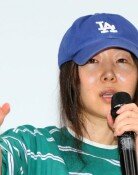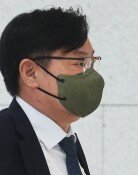Korea-Japan economic gap widens due to different leaderships
Korea-Japan economic gap widens due to different leaderships
Posted March. 27, 2017 07:10,
Updated March. 27, 2017 07:17
The Korean economy was rapidly catching up with the Japanese economy since the mid-1990s, but the gap between the Korean and Japanese economies widened again last year, a Korean think tank has warned. In its report entitled "How much has the Korean economy caught up with Japan" released on Sunday, the Hyundai Economic Institute said Korea’s global science competitiveness slipped from third in 2009 to eighth in 2016, expanding its gap against Japan, which is solidly ranked No. 2. Korea’s technology competiveness also plunged from second in 2005 to 15th last year, trailing behind Japan (10th). The problem is that the gap could expand further going forward due to deterioration of political and economic situations in Korea.
Notably, the finding that Korea is lagging far behind Japan in competitiveness to cope with Fourth Industrial Revolution that will determine their future competiveness heralds a bumpy road ahead facing the Korean economy. Korea’s adaptability for Fourth Industrial Revolution including labor market flexibility, technological level, education level and infrastructure is lagging far behind Japan’s. The level of Korea’s 10 strategic technologies is 2.8 years behind Japan, while that of the electronics and information and telecommunications sectors that Korea has been touting as its strength is also 1.2 years behind Japan in terms of technological edge. It is worrisome that Korea may never be able to overtake Japan’s technology forever, if this trend continues.
Korea was able to reduce its economic gap against Japan partly due to advantages stemming from Japan’s "lost 20 years." However, as soon as Japanese Prime Minister Shinzo Abe inaugurated in December 2012, he started aggressive quantitative easing, and implemented deregulation and pro-business policy, reviving the Japanese economy that was in a deep slump. The Japanese leader also pushed for a robust drive to keep a Japanese yen weak, and thus created a virtuous cycle of expansion in export, a rebound in domestic consumption, improvement in corporate earnings, and an increase in job creation. Abe is criticized by neighboring countries in diplomacy, but he has displayed strong leadership when it comes to economy to improve people’s livelihoods.
While the Japanese economy has performed robustly, the Korean economy has seen its potential growth rate plunge and economic fundamentals increasingly weaken over time. Former President Park Geun-hye, who was inaugurated two months after Abe, announced a "three-year plan on economic reform" plan in February 2014 and a "474" election pledge (4 percent in potential growth rate, 7 percent in employment rate, and 40,000 U.S. dollars in per-capita national income) during her term in office, but none of these goals was achieved. The "creative economy" drive pursued by the former president is set to end without generating achievement in the wake of her impeachment. The fates of the two economies have been determined by what kind of leaders they selected.
In order for Korea to catch up with Japan once again, the country desperately needs a leader with strong economic leadership who can rejuvenate economic vitality and draw a big pitcher of mid- to –long-term industrial competitiveness for the nation. However, presidential hopefuls are abusively making populist election pledges that they will create jobs with taxpayers’ money and punish chaebols in their irresponsible bids to win votes. Presidential candidates should present clear directions for the Korean economy to move forward and which strategy they will take, while the public should closely examine which candidate is most qualified and have the capability to enable Korea to win over Japan in the race for economic growth.
Headline News
- Med professors announce intention to leave hospitals starting Thursday
- Bridge honoring Sgt. Moon Jae-sik unveiled in Pennsylvania
- Chief of Staff Chung tells presidential secretaries to stay away from politics
- US FTC bans noncompete agreements
- N. Korea launches cyberattacks on S. Korea's defense companies







